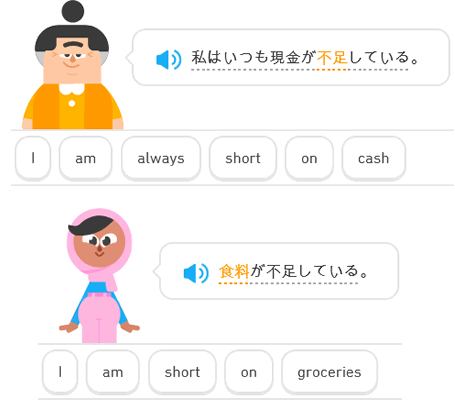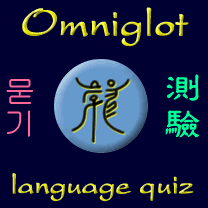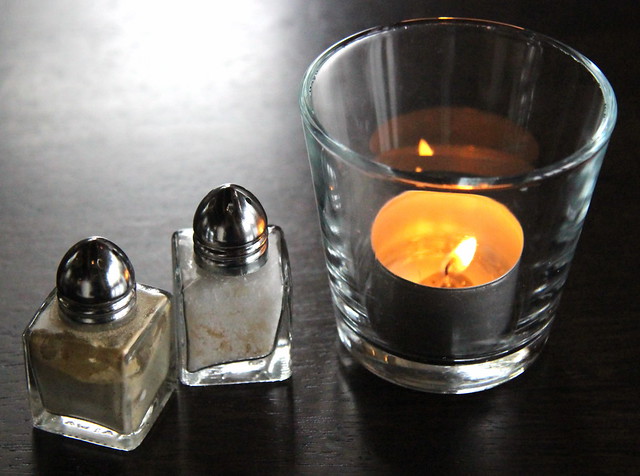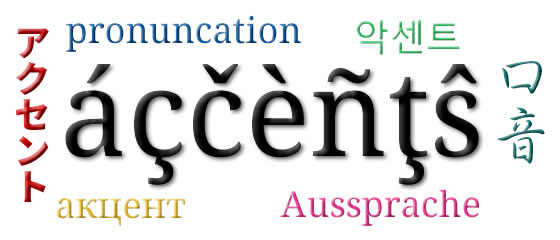Have a look at the English sentences below and see if anything stands out for you.

This comes from the Japanese course on Duolingo, by the way.
For me, the use of short on in these contexts seems odd. I would use short of here. When I saw this, I wondered if this is a difference between British English and American English – the English on Duolingo is generally American English.
I’ve noticed other subtle differences in the ways prepositions and other words like articles are used as well. For example, would you say I’m on the beach or I’m at the beach?
One Japanese way to say you’re short of/on something is 不足している (fusoku shite iru). 不足 (fusoku) on it’s own means insufficiency, deficiency, shortage, lack, scarcity, deficit, dissatisfaction, discontent or complaint. It appears in such expressions as:
- 不足分 (fusokubun) = shortage, amount outstanding (on a loan), deficit
- 不足前 (tarazumae) = deficit, shortage
- 不足勝 (fusokugachi) = needy circumstances
- 不足を言う (fusoku o iu) = to complain, express one’s dissatisfaction
不 (fu / bu) on it’s own means negative, non-, bad, ugly, clumsy, 足 (ashi) means foot, paw, arm, leg, gait or pace, and 足 (soku) it is used as a counter for pairs of footwear. The verb 足りる (tariru) means to be sufficient or enough, and 足る (taru) means to be sufficient or enough, to be worth doing, to deserve, serve or answer. If you don’t have quite enough of something, you could use the word 足らず (tarasu). It means just under, a little less than or just short of.
Source: jisho.org





